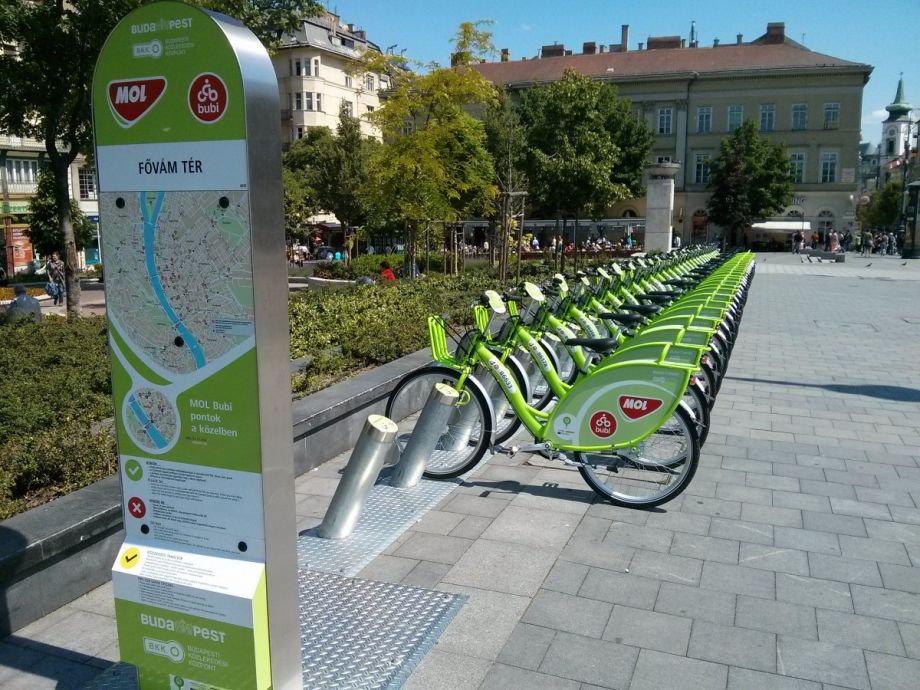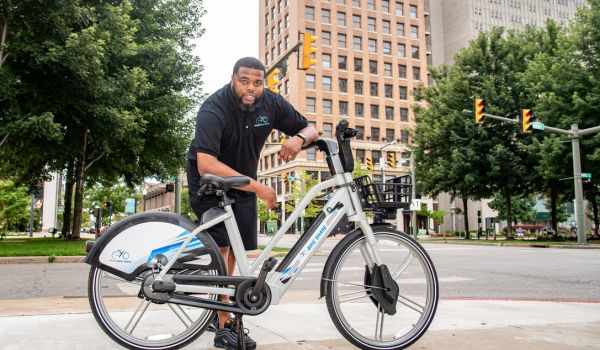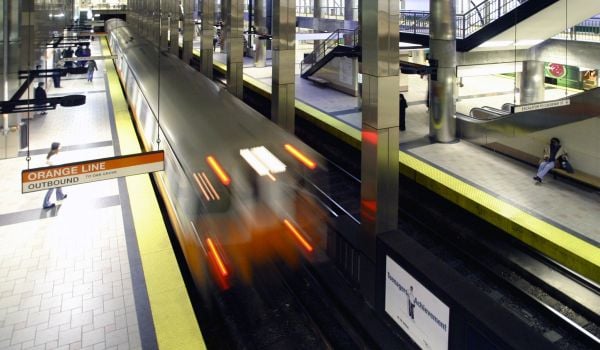Our weekly roundup of new and newsworthy transportation projects worldwide.
Bike-Share Launches in Budapest at Last
After a prolonged (five-month) shakedown period, Budapest’s Bubi bike-share network officially opened for public use on Sept. 8th.
According to a report on Eltis, nearly 6,000 people rented bikes from Bubi in its first two days of operation. The network has 1,100 bikes available at 76 docking stations.
During the system’s grand-opening period, users can obtain a seven-day ticket to the system for 100 forint (41 cents U.S.). Budapest-based journalist and bike transportation advocate Greg Spencer was even more elated about the annual pass option. In a post on his Cycling Solution blog, he noted that a one-year ticket — 12,000 forint ($49.32 U.S.), or 6,000 forint ($24.66 U.S.) for public transit pass holders — allows the holder to check out up to four bikes at a time. This, he noted, makes Bubi a viable option when guests come to visit. “The Bubi bikes are heavy and pokey (like shared bikes everywhere),” Spencer wrote, “but for short rides around town, they’re fine.”
Charlotte Presses on With Streetcar Extension
The initial 1.5-mile downtown segment of Charlotte’s modern streetcar line is set to open next spring. On Sept. 8th, the Charlotte City Council voted to proceed with a 2.5-mile , two-segment second phase amid concerns about the project’s escalating costs.
According to the Charlotte Business Journal, the council voted 7-4 to seek a $75 million federal matching grant to cover half the cost of the second phase’s construction. That $150 million figure is $24 million higher than the $126 million city planners told the council the segments would cost when it voted narrowly to proceed with the second phase last year.
The extension would take the downtown streetcar line west from Time Warner Cable Arena to Johnson C. Smith University and east from Novant Presbyterian Medical Center to Sunnyside Lane. Although it will be operated and branded as part of the Charlotte Area Transit System’s (CATS) LYNX light rail network, CATS informed the city last year it could not afford to build, operate or maintain the line, leaving the city to foot the bill for the entire project.
An analysis of operating costs per passenger mile conducted by the Charlotte Observer found that, contrary to the city’s experience with its first light rail line, the streetcar will cost more to operate than the city’s buses: $1.58 as opposed to 77 cents for buses and 68 cents for light rail.
Secretary of Transportation Anthony A. Foxx was a strong proponent of the streetcar line when he was Charlotte’s mayor, but he had difficulty getting even a majority of his fellow Democrats on the council to back the initial segment.
As of now, the modern streetcar line is projected to cost $500 million when the entire 10-mile line is finished, a figure that is sure to rise, city officials testified before Council.
Automatic Train Operation Returns to Washington Metro
This is not so much a new start as a renewal, but it will nonetheless come as welcome news to long-suffering Washington Metro riders: Starting next month on the Red Line, their rides should get faster and smoother.
That’s because the Washington Metropolitan Transportation Authority (WMATA) has completed its replacement of track-circuit modules on the line, a project that became necessary after a Red Line train plowed into a stopped train between Takoma and Fort Totten stations at nearly 50 mph in June 2009, killing the operator and eight passengers on the moving train and injuring 80 more on both trains. Defective track-circuit modules were determined to be the cause of the crash, and a highly critical National Transportation Safety Board report also pointed to the modules as contributing to several other fatal crashes and near-misses in the system’s 38-year history.
As a Washington Post story recounts, since that accident — the worst in Metro’s checkered history of accidents — operators have been running all trains in manual mode. This has resulted in longer dwell times at stations, rougher acceleration and deceleration, and reduced throughput of trains, as operators cannot maintain the precise spacing between trains and stops at platforms that computer-controlled trains can achieve.
The return of automatic control to the Red Line will be gradual. Initially, about six Red Line trains a day will operate automatically off-peak. WMATA expects all Red Line trains to operate automatically by March. Track-circuit replacement continues on the system’s Orange, Blue, Green and Yellow lines, with all modules slated to be replaced by 2017. WMATA has spent $18 million to date on the project and estimates it will spend another $33 million to complete it.
Know of a project that should be included in this column? Tweet @MarketStEl using the hashtag #newstarts.
The Works is made possible with the support of the Surdna Foundation.

Next City contributor Sandy Smith is the home and real estate editor at Philadelphia magazine. Over the years, his work has appeared in Hidden City Philadelphia, the Philadelphia Inquirer and other local and regional publications. His interest in cities stretches back to his youth in Kansas City, and his career in journalism and media relations extends back that far as well.
Follow Sandy .(JavaScript must be enabled to view this email address)



_600_350_80_s_c1.jpg)













